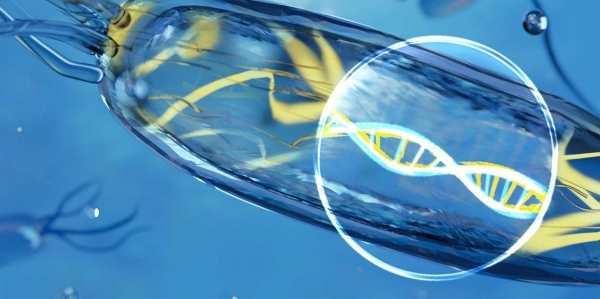The oceans are teeming with countless forms of life, from the world’s largest creature – the blue whale – to miniscule microorganisms. In addition to their vast numbers, these microorganisms are also crucial for ensuring that the entire eco- and climate system work properly. For instance, there are photosynthetically active varieties such as cyanobacteria that produce around 50 percent of the oxygen in the atmosphere. Moreover, by removing carbon dioxide from the atmosphere, microorganisms help counter global warming.
Despite this significant role, research into the diversity of microorganisms found in the ocean has thus far been only rudimentary. So, a group of researchers led by Shinichi Sunagawa, Professor of Microbiome Research, is working closely with Jörn Piel’s group to investigate this diversity. Both groups are at the Institute of Microbiology at ETH Zurich.
To detect new natural products made by bacteria, Sunagawa and his team examined publicly available DNA data from 1,000 water samples collected at different depths from every ocean region in the world. The data came from such sources as ocean expeditions and observation platforms positioned out at sea.
Read more at: ETH Zurich
Marine bacteria are a significant reservoir of undiscovered chemical compounds that could be of interest to humans. (Photo Credit: Helena Klein, ZHdK)


